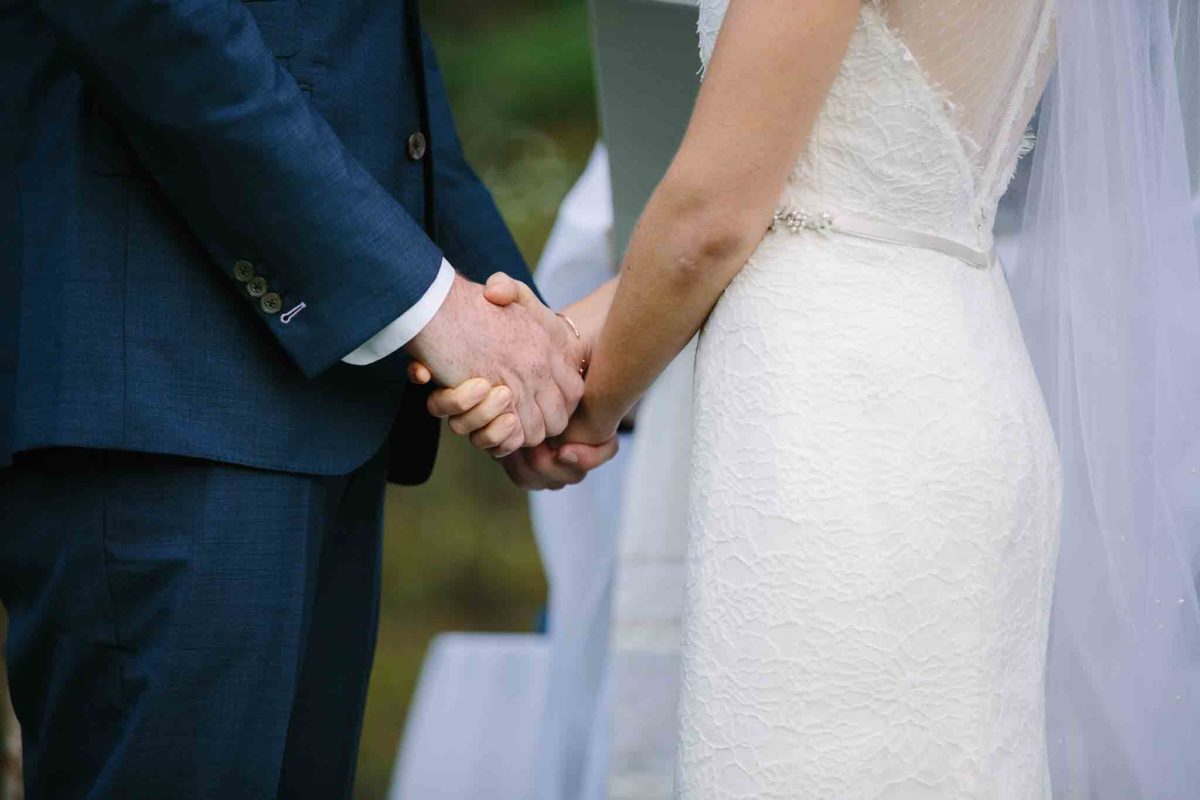If you’ve been reading the news lately, you’ve likely developed a newfound fear of hiring wedding vendors and asking yourself questions like “how do I know my rental company is going to show up?” or “how can I tell if my officiant can legally perform a marriage?” – and let’s be honest, both of these are solid questions, but it’s sad that there are vendors out there who are making us ask.
If you aren’t familiar with the stories I’m referencing, here’s a brief recap:
First there was a rental company that is accused of ghosting clients on their wedding day and not delivering anything, and now there’s an officiant who allegedly stole from wedding party members during the wedding and it turns out, the weddings he was performing are not legal, because he wasn’t actually authorized to perform the marriage in the first place.
Yikes.
So, here’s the thing. As a wedding pro, I network a lot. I don’t think people realize how much word of mouth and personal relationships drive business in our industry. We book more weddings from word of mouth and referrals than we do from all of our other marketing efforts combined. Chances are, I’ll hear about a rental company not showing up or an unsavory officiant long before it hits the news. Case in point: one of our 2016 couples asked us about using the rental company in question – we advised them to use an alternate company, and they did.
But the bigger story here, I think, is that if you’re not doing weddings 15 – 20 times or more a year, there’s a solid chance that you don’t even know who can legally perform the wedding, and how you can verify an officiant’s credentials. That’s what today’s blog post is all about.
The first thing you need to know about wedding officiants is that the laws change depending on the state you get married in – so please be aware that this post is not a one-size-fits-all approach.
In Massachusetts, in order to perform a wedding ceremony, an officiant must fit one of the following four categories:
- An in-state clergy member who has performed marriages in Massachusetts before. If your wedding will be their first, that’s okay too, they’ll just need to file additional paperwork with the state.
- In-state Justice of the Peace.
- Out-Of-State Clergy Member or Justice of the Peace. If your officiant falls in this category, they will need to file non-resident, out-of-state clergy petition in order to officiate your wedding.
- If the person you want to officiate your wedding does not fall in one of the above categories, that’s okay – they can still marry you, but they’ll need to apply for a 1-day designation from the state. The application can be submitted up to 6 months before the wedding date, and no later than one week prior. 1-Day Designations do not need to be residents.
Now that you know who can perform your wedding, here’s what you need to ask for to know if your officiant can legally perform your wedding:
- Any clergy member should be able to produce a letter or card, certificate, or some proof of affiliation upon request. Massachusetts doesn’t require clergy to resubmit a letter of good standing, however, so they may not be able to produce proof immediately – they may have to request an updated certificate, so be prepared for a delay.
- A Massachusetts Justice of the Peace should be able to produce a card that they received when they became licensed at the State House.
- Someone who applies for the 1-Day Designation certificate will receive an email almost immediately after they apply online acknowledging the application. A certificate will be sent to them – it’s important to hold on to that – the certificate will need to accompany your marriage certificate when it is mailed in after the wedding.
There are some differences in other states – for example, New Hampshire doesn’t have a one-day designation option; and in Rhode Island, a Justice of the Peace cannot officiate a wedding, and Connecticut will not recognize individuals who have been ordained online.
Photo: Studio Nouveau

